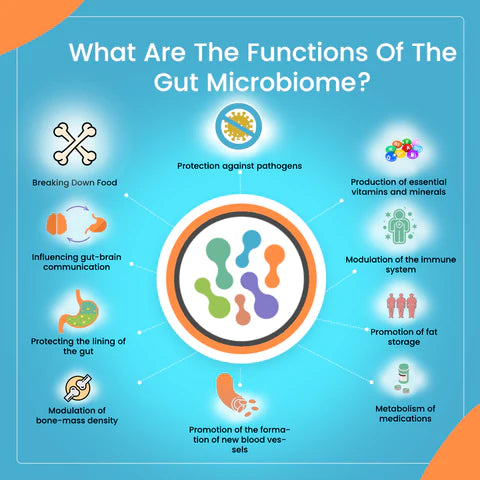What is Gut Health?
A dog’s gut microbiome is the foundation of good health and that occurs when there is a healthy balance between the good (helpful) and bad (potentially harmful) bacteria and yeast in their digestive system. In humans, clinical study has shown that 80% of the immune system is in the gut, and the majority of the body’s serotonin (“happy neurotransmitter”) is produced in the gut. We believe this is a similar situation with dogs. An unhealthy gut for dogs means that not only is their gut digestion unhealthy but so is their immune system. A non-functioning immune system means a dog is more likely to get sick. Canine gut health can affect their immune system, energy levels, and even organ function – so achieving gut health will help to ensure a healthy, happy, and active life.

What Factors Affect A Dog’s Gut Health?
- Age
- Disease
- Poor nutrition can harm the beneficial bacteria in a dog’s gut contributing to or cause inflammation throughout the body.
- Antibiotics decrease the diversity of bacteria within the gut, which can significantly impact many aspects critical to health and well being
- Environmental factors

Why Is A Dog’s Gut Health So Important?
A healthy gut helps in the avoidance of sickness and it aids in the digestion of the foods the dog eats helping the dog better absorb nutrients and vitamins needed to fuel and maintain a healthy body, coat and energy. In addition, a healthy gut helps maintain a healthy balance of serotonin and hormones all of which affect your dog’s mood and disposition. The composition of a healthy gut also has significant positive effects on immune function, and regulates the local production of antibodies which is so beneficial in protection against disease and sickness

